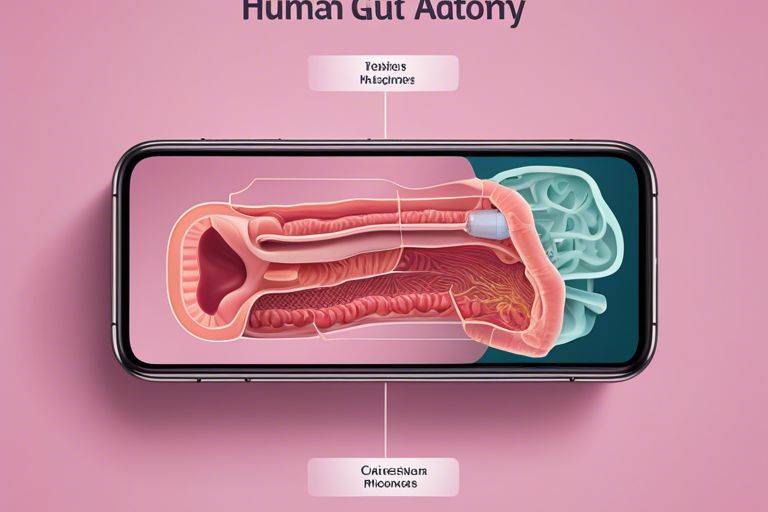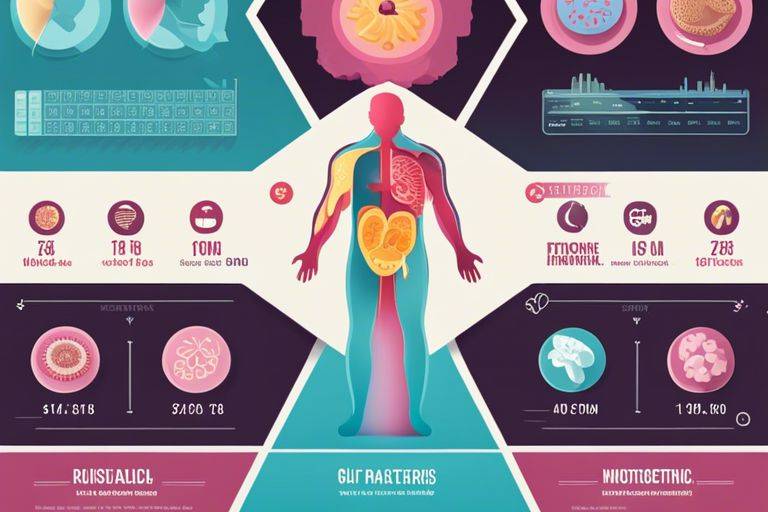Many people underestimate the importance of understanding the complexity of their gut anatomy. In this blog post, I will share 20 crucial facts about the gut that you should always keep in mind for your overall health. From the role of the microbiome to the importance of digestive enzymes, these facts will not only fascinate you but also empower you to take better care of your gut health. For more interesting facts about the human body, check out 15 Facts About The Human Body!

Key Takeaways:
- The gastrointestinal (GI) tract is a series of hollow organs where digestion and nutrient absorption occur in the body.
- The gut microbiome is composed of trillions of bacteria, viruses, and fungi that play a crucial role in digestion, immunity, and overall health.
- The small intestine is where most of the digestion and absorption of nutrients takes place in the gut.
- The large intestine is responsible for absorbing water and electrolytes, as well as forming and expelling solid waste.
- The enteric nervous system is often called the “second brain” and helps control digestion independently from the central nervous system.
- The gut-brain axis is a complex communication network between the gut and the brain that influences mood, behavior, and overall health.
- Proper gut health is crucial for overall well-being, and maintaining a balanced diet, staying hydrated, and managing stress can help support a healthy gut.
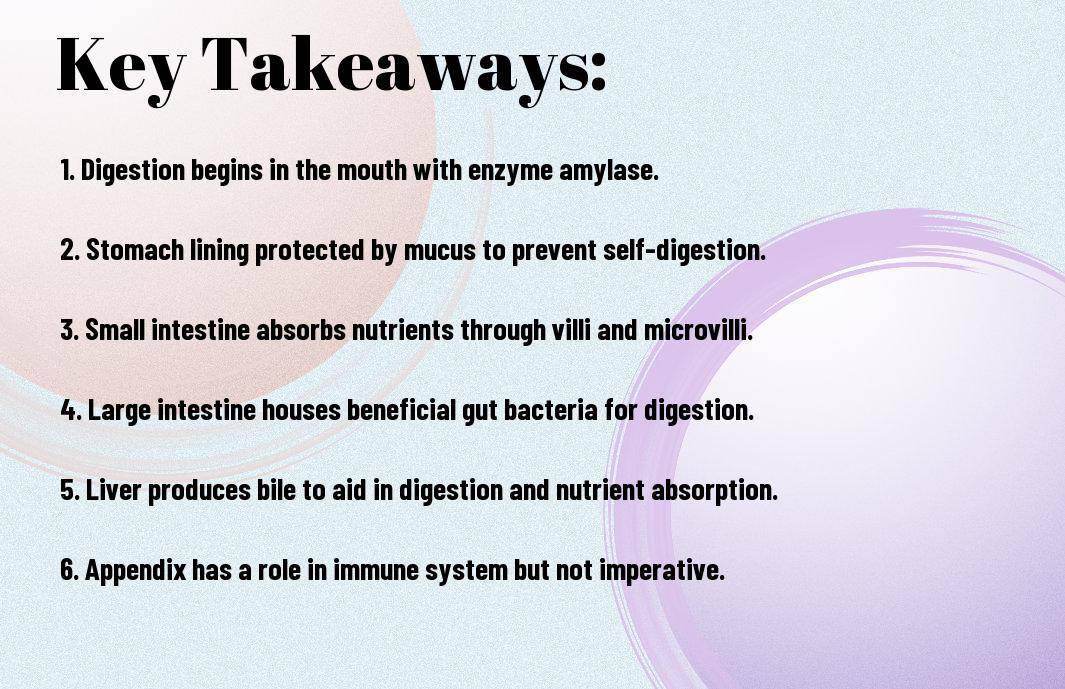
Gut Basics
Definition and Location
To truly understand the importance of gut health, we must first grasp its definition and location. An important component of our digestive system, the gut refers to the gastrointestinal tract that starts from the mouth and ends at the anus. It includes organs such as the stomach, small intestine, and large intestine where digestion and absorption of nutrients take place.
Importance of Gut Health
On a foundational level, gut health is vital for overall well-being. A healthy gut not only aids in proper digestion and nutrient absorption but also plays a crucial role in the immune system. When the balance of good and bad bacteria in the gut is disturbed, it can lead to various health issues, including digestive disorders, autoimmune diseases, and even mental health problems. That’s why maintaining a balanced gut microbiome is key to your health.
Gut Structure
It’s fascinating to learn about the intricate anatomy of the gut. If you want to investigate deeper into the details, check out 10 Fascinating Facts About Your Digestive System.
Layers of the Gut Wall
One of the vital components of the gut is its wall, which consists of several layers. These include the mucosa, submucosa, muscularis externa, and serosa. Each layer plays a crucial role in digestion and absorption processes.
Gut Muscles and Movement
To understand how our gut processes food, it’s vital to recognize the role of gut muscles and their movements. The rhythmic contractions of these muscles, known as peristalsis, help propel food along the digestive tract, ensuring proper digestion and absorption.
Another critical aspect of gut muscles is their ability to contract and relax to mix food with digestive enzymes and move it through the digestive system efficiently.
Gut Blood Supply
Supplying the gut with oxygen and nutrients is the extensive network of blood vessels running through its walls. This vascular supply ensures that the cells within the gut receive vital nutrients and oxygen for proper functioning.
The intricate network of blood vessels in the gut plays a vital role in supporting digestion and maintaining the overall health of the gastrointestinal system.
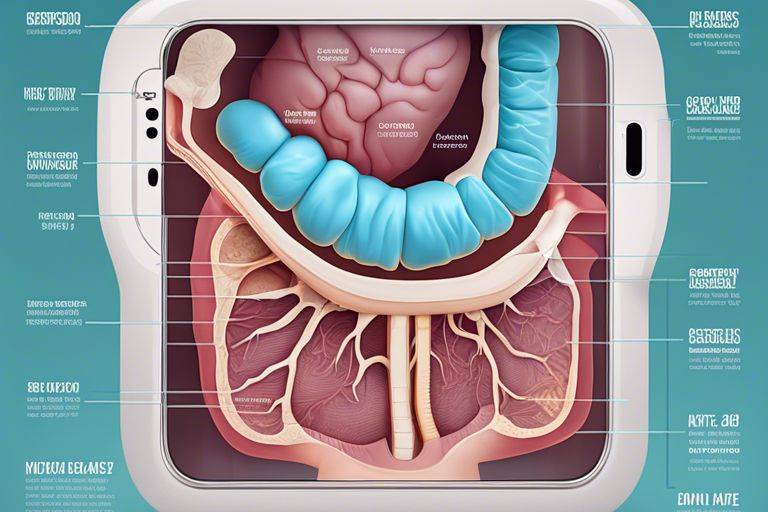
Gut Functions
Digestion and Absorption
After food enters your mouth and travels down the esophagus, it reaches the stomach where digestion begins. From there, your small intestine absorbs valuable nutrients, while the large intestine absorbs water and electrolytes to form waste products.
Immune System Regulation
One of the critical functions of the gut is to regulate the immune system. The gut houses a large portion of your body’s immune cells and plays a crucial role in distinguishing between harmful pathogens and beneficial microorganisms.
The gut-associated lymphoid tissue (GALT) is a large part of the immune system and helps monitor the gut’s contents to prevent infections and maintain a healthy balance of microorganisms.
Production of Vitamins and Hormones
Absorption.
To further underline its significance, the gut is responsible for producing important vitamins like vitamin K and certain B vitamins. Additionally, it synthesizes key hormones that play a role in regulating appetite, metabolism, and even mood.
Gut Microbiome
Introduction to Gut Bacteria
For centuries, gut bacteria have been misunderstood and underappreciated. These tiny organisms play a crucial role in our digestive system, helping us break down food and absorb nutrients effectively.
Importance of Gut Microbiome
The gut microbiome is a complex ecosystem of bacteria that influences not just our digestion but also our immune system, mental health, and even weight management. It acts as a protective barrier against harmful invaders and helps regulate inflammation in the body.
It is amazing to think that we have more bacterial cells in our bodies than human cells, emphasizing the significant role these microbes play in our overall health.
Factors Affecting Gut Microbiome
An imbalance in the gut microbiome, known as dysbiosis, can result from various factors such as diet, stress, antibiotics, and even genetics. These influencers can disrupt the delicate harmony of your gut bacteria, leading to a host of health issues.
- Diet: Consuming a diverse range of fiber-rich foods can promote a healthy gut microbiome.
- Stress: Chronic stress can negatively impact gut bacteria diversity and function.
- Antibiotics: Overuse of antibiotics can disrupt the balance of gut bacteria.
Though it may seem like a small part of your body, the gut microbiome wields incredible influence over your overall health and well-being. Taking proactive steps to support a diverse and balanced gut microbiome is crucial for optimal health.
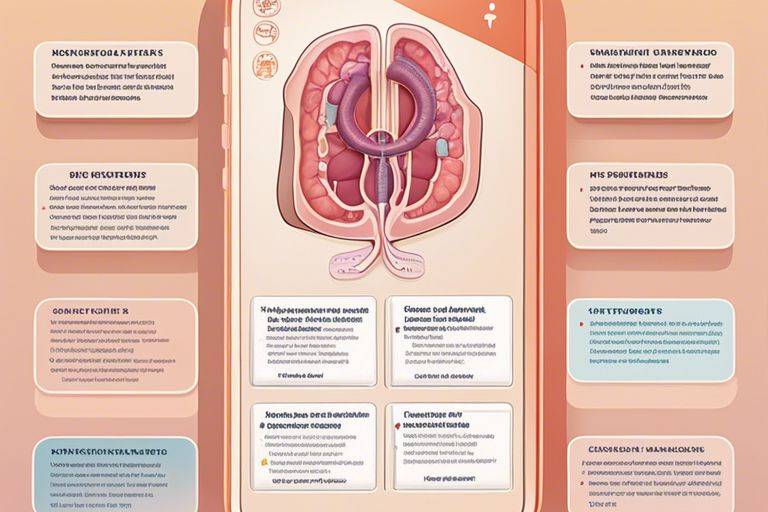
Gut-Brain Connection
Many may not realize the intricate connection between our gut and brain, known as the gut-brain axis. This bidirectional communication system involves various signaling pathways that link the emotional and cognitive centers of the brain with peripheral intestinal functions.
Gut-Brain Axis
Any disruption in the gut-brain axis can lead to a range of health issues, including gastrointestinal disorders, mood disturbances, and cognitive impairments. The balance of gut microbiota plays a crucial role in maintaining the integrity of this axis and overall well-being.
Impact of Gut Health on Mental Health
The gut microbiota can influence mental health by producing neurotransmitters, such as serotonin and dopamine, which are vital for regulating mood and behavior. The gut-brain axis also plays a role in conditions like anxiety, depression, and even neurodevelopmental disorders.
The gut-brain connection is so profound that disturbances in gut health have been linked to conditions like depression and anxiety. The gut microbiota’s influence on neurotransmitter production and immune system regulation underscores the importance of maintaining a healthy gut for overall mental well-being.
Neurotransmitters and Hormones Produced in the Gut
Plus, the gut is a significant producer of neurotransmitters and hormones that impact mood, stress responses, and even appetite regulation. These chemicals, such as GABA and cortisol, can have far-reaching effects on our emotional and mental states.
The complex interplay between the gut and the brain involves the production of neurotransmitters like GABA and hormones like cortisol. These chemical messengers influence our mood, stress levels, and overall mental health, highlighting the crucial role of gut health in maintaining emotional well-being.
Gut Disorders and Diseases
Irritable Bowel Syndrome (IBS)
Keep in mind that Irritable Bowel Syndrome (IBS) is a common disorder that affects the large intestine. Symptoms can vary from person to person but may include abdominal pain, bloating, and changes in bowel habits. Stress, certain foods, and hormonal changes can trigger or worsen symptoms.
Inflammatory Bowel Disease (IBD)
Disorders like Crohn’s disease and ulcerative colitis fall under the category of Inflammatory Bowel Disease (IBD). These conditions cause chronic inflammation in the digestive tract, leading to symptoms such as severe abdominal pain, diarrhea, fatigue, and weight loss.
Another aspect to consider with Inflammatory Bowel Disease (IBD) is that it can increase the risk of developing colorectal cancer. Regular monitoring and management of the condition are vital to reduce this risk.
Gut Infections and Parasites
Irritable bowel syndrome can also be caused by gut infections and parasites. These can result from consuming contaminated food or water, and may lead to symptoms like diarrhea, nausea, and abdominal pain. In severe cases, these infections can cause dehydration and other complications.
Understanding the symptoms and seeking prompt medical treatment is crucial in managing gut infections and parasites. Your healthcare provider can recommend appropriate testing, medications, and lifestyle changes to help you recover and prevent future occurrences.
Summing up
So, after venturing into these 20 gut anatomy facts, I hope you now have a greater appreciation for the complexities of this vital organ. Remembering these key points can help you make informed choices about your diet, lifestyle, and overall health. Your gut plays a crucial role in your well-being, so never forget to take care of it!
FAQ
Q: What is the function of the gut?
A: The gut is responsible for digestion, absorption of nutrients, and elimination of waste from the body.
Q: How long is the average adult human intestine?
A: The average adult human intestine is around 25 feet long.
Q: What is the role of gut bacteria in the digestive system?
A: Gut bacteria help with digestion, produce vitamins, and support the immune system.
Q: How does stress affect gut health?
A: Stress can disrupt the balance of bacteria in the gut, leading to digestive issues and inflammation.
Q: What are some common gut disorders?
A: Common gut disorders include irritable bowel syndrome (IBS), Crohn’s disease, and celiac disease.
Q: How can I improve my gut health?
A: You can improve your gut health by eating a balanced diet rich in fiber, probiotics, and prebiotics, and by managing stress levels.
Q: How can I tell if my gut is healthy?
A: Signs of a healthy gut include regular bowel movements, no bloating or gas, and overall well-being. If you have concerns, consult a healthcare provider.
